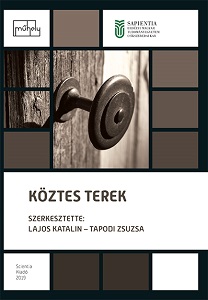Kosztolányi és Heidegger „dialógusa” a költői valamint a filozófiai létértelmezés játékterében
Kosztolányi and Heidegger’s “Dialogue” around the Poetic and Philosophical Ontology
Author(s): Erika Sipos
Subject(s): Language and Literature Studies, Studies of Literature
Published by: Scientia Kiadó
Keywords: ontology; hermeneutics; poetic word; dialogue;
Summary/Abstract: My research sets out from the hypothesis that the “poetic word” can help us understand Heidegger’s conception of death if, in addition to rational knowledge, we also gain a tune that can modify the interpretation into self-interpretation. The poetic word, says Gadamer, tears us from our familiar world in a way that it shows us the world in which we are thrown into. Similarly to Gadamer, Kosztolányi also emphasizes the unique role of the poetic word. He writes, “the poetic word, like a tuning fork, hits a sound, we vibrate with it and then the secret and unconscious phenomena that are linked to the concept begin to sound at once” (cf. Thoughts on Language, Kriterion. 1977, p. 83). This is the reason why I chose the cycle The Complaints of the Poor Little Child, which Kosztolányi himself describes as his most important volume, and which is at the same time perfectly suited to creating the tuning needed to understand Heidegger’s fundamental ontology. However, the dialogue between the two thinkers cannot be one-way, and thus we can expect that Kosztolányi’s poems will be better understood if read with Heidegger’s fundamental ontology in mind. This interference is based on Gadamer’s hermeneutics, which is rooted in the Socratic method, also known as maieutic. This method promises a better understanding if we are able to create a space with a dialogue that does not manifest as the opposition of the self and the other but rather through the recognition of the other in oneself and vice versa, the self in the other.
Book: Köztes terek (2019. április 26–27., Csíkszereda)
- Page Range: 69-77
- Page Count: 9
- Publication Year: 2020
- Language: Hungarian
- Content File-PDF

